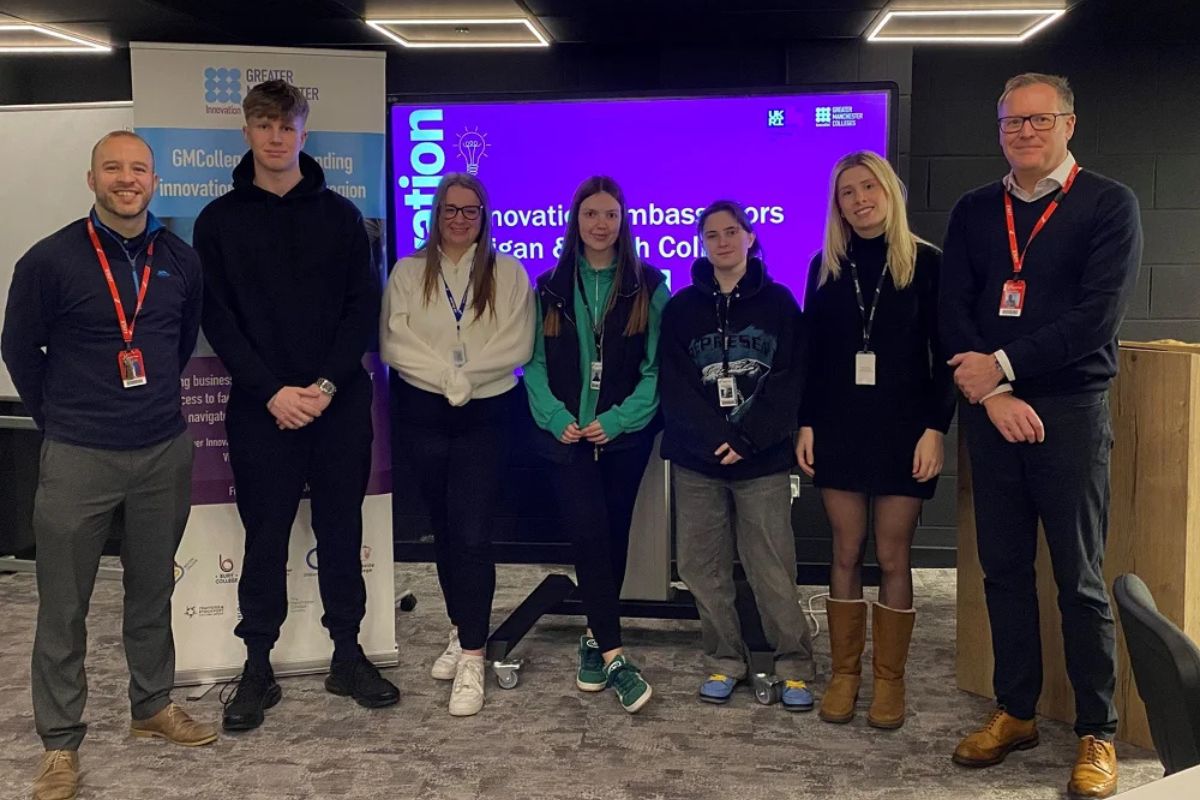Young People Need More than Relationship Sex Education (RSE) in the classroom to achieve the relationships they want

High quality Relationship, Sex, Education (RSE) in schools and colleges is important to prepare young people for relationships throughout their lives. However, in a new poll for Fastn and the National Youth Agency carried out by Survation this RSE Day, young people highlighted the vital contribution that role models play throughout the different aspects of their lives.
Che from Birmingham, who has been involved in Fastn’s youth work said,
‘I know that I’m influenced by all sorts of different people around me, and as a young person I need to see them modelling good relationships: it means that I think it could be possible for my relationships too.’
Role models can take many different forms, both formal and informal, and can have a lasting impact on the young people around them. Young people told us, parents, immediate family members and peers have the biggest influence on their relationship preparedness.
Trustworthiness was ranked the most important attribute of positive relationship role models by young people. Teachers and youth workers were considered to be highly trustworthy, along with parents and grandparents.
Relationships are the foundations that help, all of us, manage whatever life throws at us. If we get them right, then we’re more likely to thrive – at school, at work and in society*.
Julie Nash, Fastn’s trustee, ex-Ofsted Inspector and retired Headteacher said,
‘77% of those polled cited RSE as important in helping them to be prepared for future relationships in all areas of their lives. RSE, now a statutory part of the curriculum, should not however be confined to timetabled classes alone. Research shows conclusively that we learn about relationships through role modelling and experience, whether this is intentional or not. School leaders making a meaningful commitment to relationships education will be taking a systemic approach in all areas of school life. The Principles of Excellence in Relationships Education is a key resource to support educationalists to equip pupils for relationships throughout their lives.’
The Principles of Excellence in Relationship Education -rooted in research and developed by leading relationship and educational experts and led by charity, Fastn, reflect what we now know from neuroscience, that relationships are learned from a variety of people, circumstances and experiences.
The polling highlighted that young menwere less likely than women to consider RSE lessons important (74% compared to 80%). 91% of young women polled agreed that students should learn about ‘feelings and needs that motivated their behaviour’, in contrast to 81% of young men. The Ofsted Review of Sexual Abuse in Schools (2021), highlighted the systemic sexual harassment and abuse experienced by girls and trans pupils. Girls and young women told Ofsted that they feel responsible for educating fellow pupils about acceptable and unacceptable behaviour.
Owen Thomas from Future Men said,
‘We know from research and what our service users tell us that boys and young men feel current statutory RSE is not aimed at them, and is focussed instead on female reproductive issues, and the practicalities of sex and biology. They feel they are being told what ‘not to do’ rather than being educated and empowered about what is acceptable and desirable and good for them as men and boys. We think there should be an emphasis on relationships, respect and what will make boys and men happy both emotionally and sexually.’
Young men were both more likely to cite youth workers as positive role models for relationships and more likely to have interacted with youth workers who helped their development (36% of men compared to 28% of women). Structured youth work with responsible adults – either within or beyond school communities – may offer a unique opportunity to equip young men with the aspirations and skills for healthy and nurturing relationships.
Much work is undoubtedly still needed and a diversity of trusted adult role models can play their part, both within and beyond the classroom. Young people (76%) cited the importance of learning from responsible adults in organised activities outside of school however, 40% of young people have not interacted with a youth worker, highlighting the opportunity for greater engagement.
Leigh Middleton, National Youth Agency’s Chief Executive Officer said,
“Young people need long-term, trusting relationships with adults who they can talk to in safe spaces about the challenges and issues they’re experiencing. This is especially important when more young people are being home schooled, 80,000-100,000 young people are still missing from school settings and some of the most disadvantaged young people struggle with formal education environments. The youth work pedagogy and the National Youth Work Curriculum aim to include all young people in informal learning on life topics and skills within safe spaces for youth workers to understand specific needs. Unfortunately, not every young person can access a qualified youth worker, but this survey recognises the unique role that a youth worker could have in supporting young people compared to other adult relationships in their lives.”
Young people told us decision makers should take steps to support them in their future relationships. Their leading recommendations to government were to; fund dedicated school counsellors, take concrete actions to reduce the stress on family relationships caused by poverty, discrimination and violence, and to improve the diversity of trusted adults in educational settings.
Emily from London said, ‘Diverse role models can create positive representations that can encourage people to believe that they are worthy of good things and also unlearn the negative ideas they may have picked up.’
Key findings
In a poll of 1012 young people aged 16-25 when asked about relationships, they told us,
- Being trustworthy was the most important attribute for a positive role model (53%)
- Taking concrete action to reduce stress on family relationships caused by poverty, discrimination and violence, funding dedicated school counsellors and improving the diversity of trusted adults in educational settings were the top three options cited for improving young people’s relationship learning and skills.
- Parents/Guardians were cited most frequently as positive role models for healthy and dependable relationships.
- Teaching staff should be knowledgeable and confident (87%), teaching should help young people to recognise unhealthy relationships (87%) and that students should learn about feelings and needs that motivate their behaviour were the most important aspects of RSE in schools (86%).
- Talking to your peers (84%), learning from your parent/immediate family (85%), relationship and sex education in school (77%), college/university and learning from responsible adults in organised activities outside school (76%) were seen as the most important things to prepare for the types of relationships young people want.
- The polling also highlighted that young men (74%) were less likely to consider RSE lessons important in preparing them for their future relationships than young women (80%).











Responses